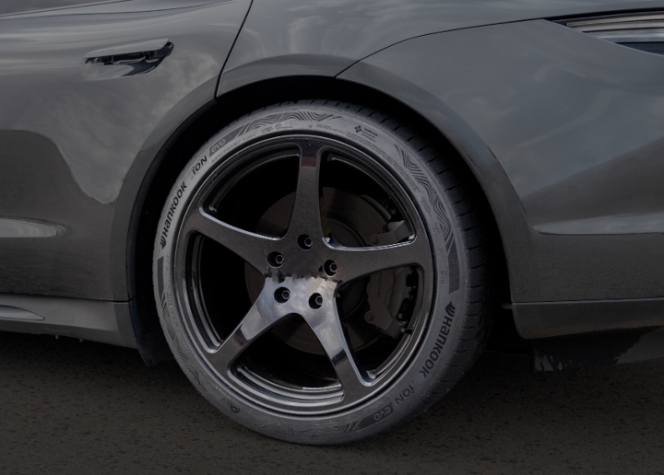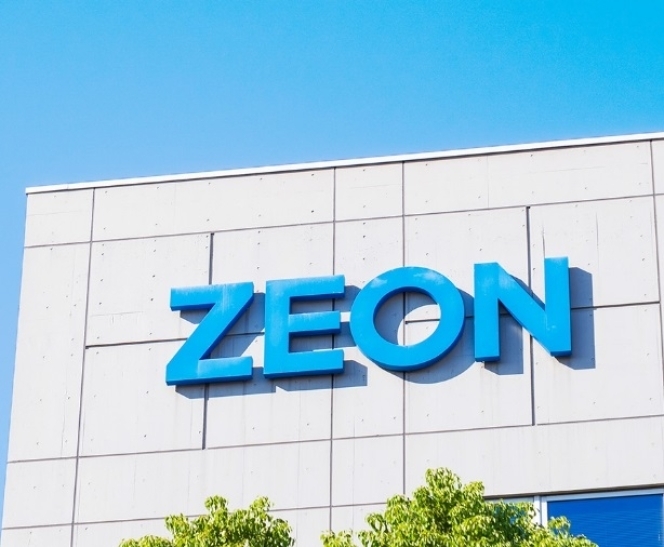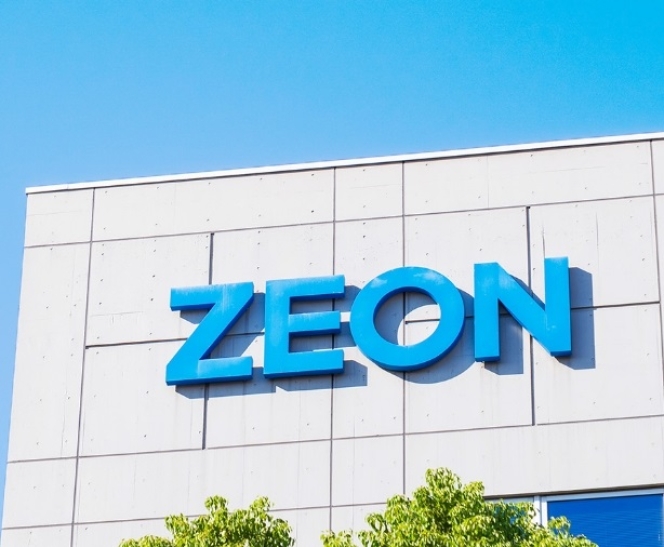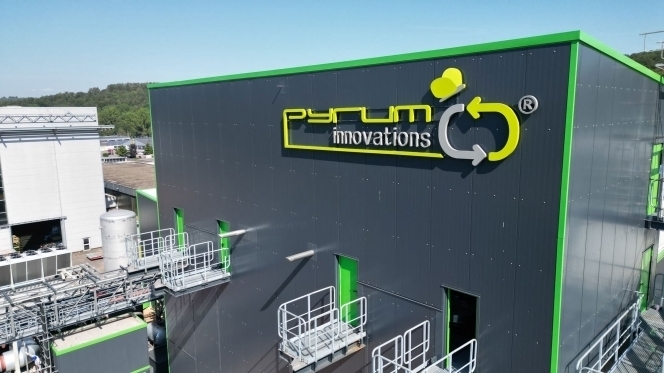- Hankook Tire & Technology
- Hankook Tire
- ISCC Plus
- iON evo
- Hankook iON Race
- ABB FIA Formula E World Championship
- KlausKrause
- sustainability
- Porsche Taycan
Hankook’s first EV tyre with ISCC Plus certification to be sported on new Porsche Taycan
- By TT News
- May 29, 2024

Global leading tyre company Hankook Tire & Technology (Hankook Tire) has introduced its first EV summer tyre with ISCC PLUS certification (International Sustainability & Carbon Certification) with the iON evo.
The new tyre is derived from the Hankook iON Race tyre, which has been used exclusively on the vehicles competing in the ABB FIA Formula E World Championship since 2023 and consists of 45 percent sustainable raw materials. The new iON evo will come as OE fitment on the updated Porsche Taycan electric sports car. This the company claims are the first tyre in the premium vehicle manufacturer's original equipment range with this prestigious certification.
Klaus Krause, VP & Head of Europe Technical Center, Hankook said, “The ISCC PLUS-certified iON evo represents the culmination of our ambition to produce tyres that are truly more sustainable. We are also very proud that our European production plant in Hungary, where the iON evo is produced, is the second Hankook site worldwide to receive the coveted ISCC PLUS certification. The fact that Porsche has chosen the iON evo as original equipment for the new Taycan is of course a big vote of confidence for us. Thanks to our motorsport-proven technologies, the Hankook tyre with its increased sustainability and optimised rolling resistance makes a significant contribution to increasing the range of the high-performance electric sports car.”
Sustainability at the core
Despite the high content of 45 percent sustainable materials, the developers at Hankook have said to succeed in increasing the iON evo’s sustainability without having to compromise on tyre safety and performance. The engineers used renewable and recycled materials that match the strength, flexibility, and durability of conventional tyre components. These include bio-based silica from grain waste, recycled PET textile cord from plastic waste, bio-circular synthetic rubber from bio-circular feedstocks, recycled carbon black from used tires, and even natural resin. The Hankook team responsible for the development of the tyre were also able to leverage the knowledge gained from Formula E, where a racing tyre with a high percentage of sustainable materials – the iON Race – is used.
The new iON evo with the ISCC PLUS logo on its sidewall is making its debut as original equipment for the Porsche Taycan in the dimensions 245/40 R21Y XL (FA) and 285/35 R21Y XL (RA). Like the other tyres in the iON family, this advanced development uses a tread mixture with plant-based oils. It not only makes the tread more sustainable overall, but also has a positive effect on the durability. For support during especially dynamic driving or sudden lane changes, the Hankook engineers also used reinforced material to increase the lateral stiffness. The engineers also benefited from knowledge gained in previous homologation processes for the premium manufacturer.
Increased range
Hankook states as with the other iON models, the new iON evo with ISCC PLUS certification offers greatly reduced rolling resistance compared to a conventional tyre, which increases the range per battery charge of the Porsche Taycan.
Porsche itself states that up to 40km more can be possible thanks to the 21-inch aero wheel from Hankook. In addition, the Hankook iON products are particularly designed for the immediately available high torque produced by powerful electric vehicles. All in all, what this means for the electric car driver is more range per battery charge and a feeling of real safety and comfort when driving.
Zeon And Visolis Sign Binding Term Sheet To Advance Bio-Isoprene And SAF Commercialisation
- By TT News
- February 16, 2026

Zeon Corporation and Visolis Inc. have formalised their partnership by signing a binding term sheet, marking a pivotal advancement in the commercialisation of bio-based isoprene monomer and sustainable aviation fuel (SAF).
This collaboration, which now moves from technology verification towards project implementation, is built upon the progress made since their initial memorandum of understanding in March 2024 and the subsequent joint feasibility study announced in April 2025. Bio-based isoprene monomer serves as an essential component in the production of synthetic rubbers and various other materials, while SAF is increasingly recognised as a critical next-generation fuel for reducing carbon emissions within the aviation industry.
The newly established term sheet outlines a foundational agreement on the key elements required for a final investment decision. These include defining the business structure and the respective roles of each company, establishing technology and development strategies and advancing detailed engineering for the proposed production facility. Furthermore, the agreement covers the evaluation of potential sites, the process for engaging with suppliers, securing necessary regulatory approvals and planning the financing pathway.
The envisioned facility is set to commence commercial-scale output after successfully demonstrating mass production capabilities for biomass-based isoprene and SAF, utilising Visolis’ proprietary technology. Both companies are now committed to expediting the path to full-scale production and ensuring a steady supply of these sustainable products to the global market.
Zeon Backs Chemify To Accelerate Digital Chemistry Innovation
- By TT News
- February 12, 2026

Zeon Corporation has deepened its commitment to digital chemistry through a strategic investment and partnership with Chemify Limited, secured via its corporate venture arm Zeon Ventures Inc. Chemify, a growth-stage UK enterprise, is reshaping molecular research by integrating digital tools with automated laboratory systems. Its proprietary Chemputation technology translates molecular targets into executable chemical code, which operates directly on robotic platforms to complete integrated Design–Make–Test–Analyze cycles without manual intervention. This closed-loop automation allows Chemify to explore previously inaccessible areas of chemical space while reducing the timeline from concept to synthesized compound by up to tenfold.
A cornerstone of Chemify’s capability is its recently inaugurated Chemifarm in Glasgow – one of the most sophisticated automated facilities in the world for molecular design and construction. The facility enables accelerated iteration and autonomous synthesis of novel small molecules, converting chemical code into tangible compounds with unprecedented efficiency. These advances are critical for developing functional, synthesisable molecules that can contribute solutions to urgent global issues spanning public health, energy efficiency and environmental protection.
Zeon has been at the forefront of adopting digital methodologies in chemical R&D, recognising their transformative potential from an early stage. This investment is positioned to strengthen Zeon’s internal digital chemistry efforts and catalyse the invention of novel materials capable of addressing complex societal needs. The move aligns with Zeon’s STAGE30 corporate strategy, which targets a rise in revenue contribution from four key growth sectors – Mobility, Healthcare and Life Sciences, Telecommunications and Green Transformation – to 48 percent by fiscal 2028. By backing pioneering enterprises and cultivating advanced materials, Zeon continues to advance its dual vision of a sustainable planet and a secure, progressive society.
- Rubber Board Of India
- Rubber Producers’ Societies
- Sulphur Dusting
- Powdery Mildew
- Rubber Plantations
- Rubber Board Subsidy
Rubber Board Announces Sulphur Dusting Subsidy For Rubber Producers
- By TT News
- February 09, 2026

The Rubber Board of India has announced the opening of an application window for financial aid for sulphur dusting to combat powdery mildew disease in rubber plantations for the year 2026. The scheme is open to all Rubber Producers’ Societies (RPS) operating in both traditional and non-traditional growing regions.
From 10 to 20 February 2026, eligible societies must submit their applications online through the 'ServicePlus' portal on the official Rubber Board website. Societies requiring help with the submission process are advised to contact their nearest Rubber Board regional office or field station, or to consult the board's website for further guidance.
French Recognition Of TPO Bolsters Pyrum's Circular Economy Model
- By TT News
- February 09, 2026

Pyrum Innovations AG has welcomed the official recognition by French authorities on 17 January 2026, which classifies tyre pyrolysis oil (TPO) as a legitimate raw material for the chemical sector. This pivotal regulatory milestone for pyrolysis oil derived from end-of-life tyres substantially enhances the product’s integration into established chemical value chains. It also provides greater predictability for future purchase and partnership frameworks, thereby accelerating the development of industrial material cycles.
For Pyrum, which processes scrap tyres through pyrolysis to recover pyrolysis oil, industrial carbon black and steel, this decision underscores the critical need for standardised and reliable regulatory conditions. Such clarity is fundamental for scaling investments, production volumes and supply chains, particularly as the chemical industry and circular economy converge. The establishment of clear product categories is essential to ramp up the market for high-quality recycled raw materials.
The company remains committed to tracking further developments in France and the wider European dialogue regarding the classification and application of recycled feedstocks. Pyrum’s overarching objective is to expand industrial-scale recycling solutions for scrap tyres. This regulatory progress directly supports the company’s mission to secure long-term, quality-assured supply agreements with partners across the chemical industry, thereby advancing a more sustainable and circular economic model.
Pascal Klein, CEO, Pyrum Innovations AG, said, “The decision in France is an important step for the industrial use of pyrolysis oil from waste tyres. It supports a trend that we are seeing in many markets, where the chemical industry is seeking reliable, technologically robust and clearly classified alternative raw materials.”







Comments (0)
ADD COMMENT